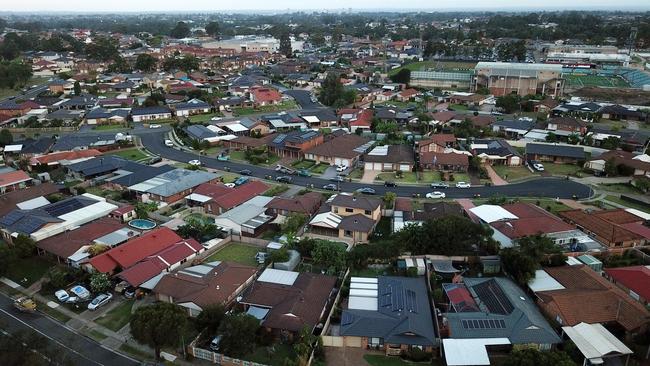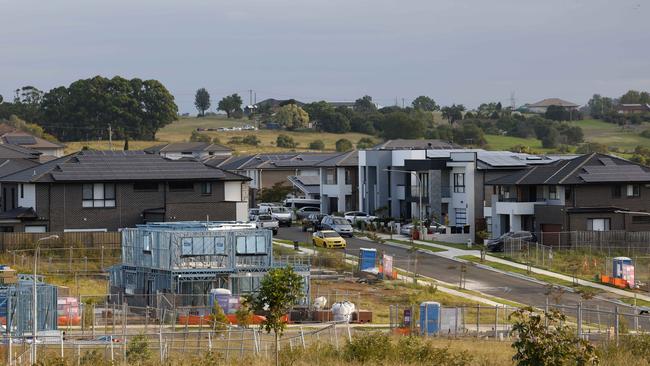
The housing crisis she faces was, in the main, created by well-meaning but foolish state and federal politicians (both parties) so it can’t be solved by bizarre building quotas that current politicians set themselves without addressing the underlying problems their predecessors helped create.
O’Neil had a bruising experience in Home Affairs, and she will need to apply the lessons learned to at least make a start on sorting out the housing mess.

My commentary will address helping those who in previous years would have been able to buy or rent a dwelling in their current occupations.
Chronic homelessness has always been with us but has been made much greater by political mistakes.
In particular, we allowed our education system to produce much greater numbers of people who could not read or write properly. The worst affected by the bad education policies were males. This now contributes to family violence. There are clear signs from the Australian, NSW and Victorian governments that their education ministers are prepared to accept the political blows required to rectify the past mistakes.
There are two broad aspects to the housing problem – creating an increased supply and enabling ordinary Australians to buy a dwelling or rent if they prefer.
The two biggest factors inhibiting supply are state government policies and skills shortages.
On the government policy front, local communities do not want development and their local councillors reflect this view.
State politicians respond by creating vast bureaucracies and bodies that can be used to delay developments for years, so boosting the cost and restricting the supply.
By far the worst state is NSW and this supply constraint becomes a major contributor to the escalating prices of NSW dwellings which homeowners like.
The best areas are Brisbane and theGold Coastwhere local councillors rarely get involved in approvals and there are clear rules for speedy approvals or rejections.
All the other states are somewhere in between the extremes of greater Sydney and the smoother process in Brisbane and on the Gold Coast.
It won’t be easy, but the job of O’Neil in Canberra is to use the carrot and stick to bring NSW, and to a lesser extent the other states, as close to the Queensland system as possible. The first step is to recognise the problem.

The second supply area is, of course, the skills shortages.
Victoria is spraying countless billions at a rail project that will benefit very few people, but absorbs the skills required in housing.
Solving the Victorian skills shortage will require stopping that project, but sadly, O’Neil’s electorate maybe one of the very limited areas that gain benefit.
In the skills area obviously better education is required but so is migration and builders complain that it’s very hard to get building skills through the migration morass.
When it comes to enabling people to buy dwellings (or rent if they prefer) I recently had a conversation with a group of young Brisbane teachers who bemoaned the fact that they had chosen the teaching profession because it now meant they would never be able to buy a house in an area where they chose to live.
Those conversations could be held with many other professions that are important to the community. O’Neill needs to have those conversations directly and not rely on the bureaucratic apparatuses.
The first area of the “buying a dwelling” problem is that banks are not allowed to lend to our teachers unless their parents help. The minister needs to talk with the CEOs of major and smaller banks because they all have ideas as to how to solve that problem. Out of those ideas, the minister can set up a solution matrix.
Part of that solution will be the situation with apartment developments, where banks have required builder/developers to sell apartments off the plan before lending. This is a recipe to send developers broke because the fixed prices at which they sell can be far too low when costs are rising.
Similarly, home loans require a fixed building price, which again sends builders broke.

We know there will be flack from banking regulators, but it requires a strong, Fulbright scholar housing minister to devise a solution from the ideas that are swirling around the banking area.
There is capital available from overseas institutions and perhaps local superannuation funds for rental accommodation. That will help along with government capital.
But Australia had a wonderful system of community members buying houses and renting them. That’s being killed off by state rules that are too generous to tenants and, in the case of Victoria, enormous taxes. And regular threats to end negative gearing don’t help.
There are many aid programs for first home buyers which need to be rationalised and turned into long-term solutions.
Part of the long-term solution will also be to recognise that the best retirement asset is owning a dwelling, and superannuation should be harnessed to help this process.
That is not politically possible for the ALP because of its close links with the unions, who greatly influence the trustees of superannuation funds.
In time, the Coalition will come to government and that must be their first priority in the housing sector.
It is sad that the trustees of superannuation funds have not woken up to the change in the society.
Longer term, O’Neil needs to begin the process of showing the superannuation funds how the game has changed, and their old fashion ideas actually endanger superannuation.
In the meantime, there is plenty for O’Neil to do.






The new government housing minister, Clare O’Neil, is a Harvard educated, Fulbright scholar with experience at McKinsey.